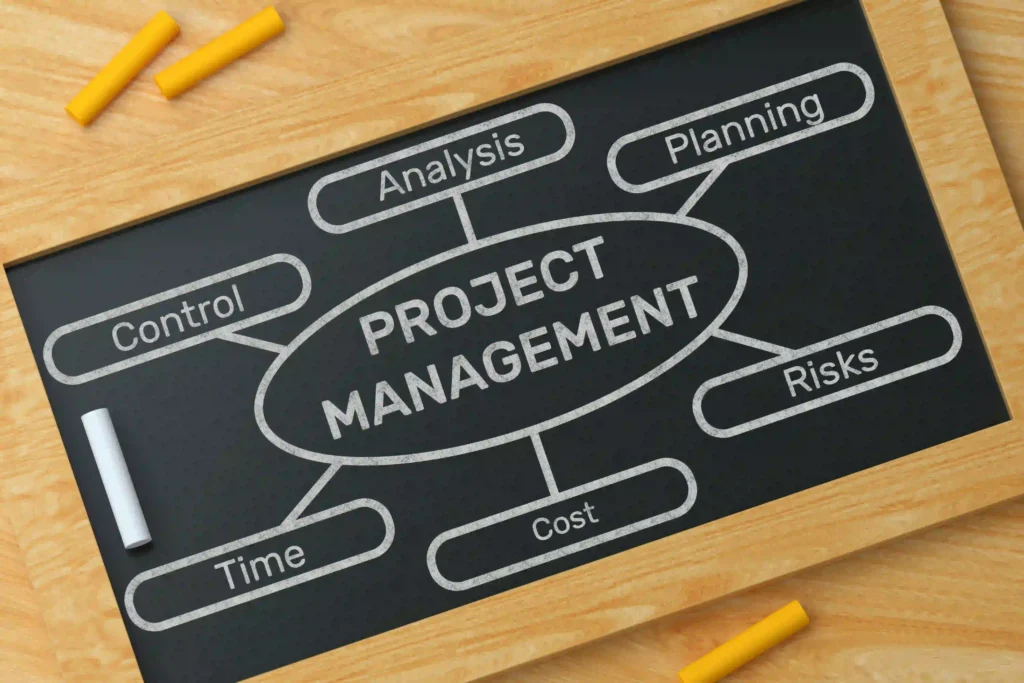
The Project Management Professional (PMP) certification is globally recognized as a gold standard in project management. Awarded by the Project Management Institute (PMI), the PMP credential signals to employers that you have the skills, knowledge, and experience to manage complex projects effectively. But many aspiring project managers or career switchers often ask: Can I get PMP certification without experience?
If you’re considering applying for the PMP but lack formal experience in a project management role, this blog is for you. We’ll explore the PMP certification experience requirements, clarify what qualifies as project management experience for PMP, and offer alternative pathways for professionals who want to earn the credential but don’t have traditional project management titles under their belt.
Let’s break down what the PMP requires and what your options are if you fall short on the experience front.
What are the PMP Certification Experience Requirements?

PMI has specific eligibility criteria for PMP applicants. To sit for the exam, you must meet both education and experience requirements:
Option 1
- Four-year degree (Bachelor’s or global equivalent)
- 36 months of project leadership experience within the last 8 years
- 35 contact hours of formal project management education (or a CAPM certification)
Option 2
- High school diploma or associate’s degree
- 60 months of project leadership experience within the last 8 years
- 35 contact hours of formal project management education
This means that if you don’t have documented PMP project management experience leading and directing projects, you’re technically ineligible to apply.
But this doesn’t mean the door is closed.
What Qualifies as Project Management Experience for PMP?
A common misconception is that only people with a “Project Manager” job title can qualify for PMP. That’s not true.
PMI defines project management experience broadly. If you’ve worked on projects that:
- Had a definite start and end
- Delivered a unique outcome or service
- Required coordinating resources, timelines, budgets, or stakeholders
… then you likely have qualifying experience.
This could include:
- Leading an internal system upgrade
- Coordinating a company-wide training rollout
- Managing client onboarding or product launches
- Running marketing campaigns
- Supervising event logistics
The key is your role in leading and directing parts of the project, not just participating as a team member. At Education Edge, we help candidates map out and document their past work to ensure it aligns with PMI’s expectations.
Can You Get PMP Certification Without Experience?

Short answer: No, you cannot get PMP certification without project management experience as defined by PMI.
However, there are some important nuances and workarounds:
1. You Might Have Experience and Not Know It
Many professionals manage projects as part of their role without calling it “project management.” Our PMP coaching team helps you:
- Identify qualifying projects from your work history
- Translate tasks into PMI’s language (e.g., initiating, planning, executing)
- Structure your application to meet audit standards
2. Consider CAPM First
If you truly don’t meet the PMP work experience requirements, the Certified Associate in Project Management (CAPM) is an excellent alternative. It requires:
- A high school diploma
- 23 contact hours of project management education
It’s a great way to:
- Build foundational knowledge
- Boost your resume
- Gain a stepping stone toward PMP
Education Edge offers a CAPM preparation course designed to help you qualify and pass with confidence.
How to Get PMP Certification Without Experience (Or What to Do First)
While you can’t bypass PMI’s experience requirement, here are actionable steps to move forward:
Step 1: Take a Formal PMP Course
A reputable PMP course, like ours at Education Edge, helps you:
- Understand the PMI framework and language
- Gain your 35 contact hours
- Begin identifying qualifying experience
Explore our PMP certification training.
Step 2: Track and Document Your Experience
Even if you’re not eligible today, start tracking the projects you manage or contribute to. Keep notes on:
- Scope and objectives
- Your leadership role
- Stakeholder communication
- Budget and timeline oversight
- Project results
This will make it easier to qualify and apply later.
Step 3: Volunteer or Intern in Project Roles
Look for opportunities to:
- Assist with internal initiatives
- Coordinate tasks for a nonprofit
- Take on cross-functional projects at work
You don’t need a PM job title to accumulate experience; you just need to manage actual projects.
Step 4: Consider CAPM or Agile Certifications
While building experience, consider:
Both certifications are offered by PMI and show employers your commitment to project management.
Common Myths About PMP Experience Requirements
- “I need to be a full-time project manager.”
False. Many professionals meet the PMP certification experience requirements through hybrid roles.
- “I must have five years of experience minimum.”
Only true if you don’t have a bachelor’s degree. With a 4-year degree, only 3 years (36 months) are needed.
- “All my experience must be recent.”
PMI accepts project experience from the last 8 years, so earlier roles still count.
- “I need project management software knowledge to qualify.”
No. Software proficiency is useful but not part of PMI’s experience requirements.
PMP vs. CAPM: Which One Should You Start With?
If you don’t meet the PMP certification experience requirements, CAPM is a better starting point.
| Criteria | PMP | CAPM |
| Experience Needed | Yes (3-5 years) | No |
| Exam Duration | 230 minutes | 150 minutes |
| Education Required | 35 hours | 23 hours |
| Focus | Leadership, Strategy, Execution | Fundamentals, Terminology |
| Ideal For | Experienced PMs | Entry-level professionals |
At Education Edge, we help students transition from CAPM to PMP seamlessly as they build experience.
Transitioning to a PM Role Without Formal Experience
If you’re just starting out and aiming for PMP certification in the future, there are several proactive strategies to break into the field. Begin by seeking cross-functional responsibilities within your current job that expose you to planning, coordination, or team leadership.
Additionally, networking with certified PMPs, joining PMI local chapters, or attending workshops can open doors to mentorship and hands-on learning. Even shadowing project teams or offering support on smaller internal initiatives helps you develop real-world experience, which can later fulfill the PMP eligibility criteria.
Conclusion
While you cannot earn the PMP certification without project management experience, you may already have qualifying experience even if you don’t hold the job title of “Project Manager.” The PMP is designed for professionals who lead and direct project efforts, which is broader than most people realize.
At Education Edge, we specialize in helping professionals understand the PMP work experience requirements, identify past experience that counts, and guide them through the full application and training process. And if you’re just getting started, we can support your journey with CAPM certification as a stepping stone to PMP.
To find out whether you’re eligible and what your next steps should be, schedule a consultation with our PMP experts or explore our PMP training programs today.
Don’t let job titles hold you back—start building your PMP path now.
FAQs
What are the minimum requirements to take the PMP exam?
To take the PMP exam, candidates must meet specific criteria based on their education level. If you hold a four-year degree, you need at least 36 months of experience leading projects in the past eight years, plus 35 hours of project management education. If you have a secondary diploma or associate’s degree, then 60 months of project leadership experience is required along with the same 35 education hours. These experience hours must reflect direct involvement in leading or managing project activities.
Can I get into project management with no experience?
Yes, you can enter the project management field without formal experience by starting in junior roles, supporting internal initiatives, or taking on project-related responsibilities at your current job. Earning an entry-level credential like CAPM from PMI is a strategic way to showcase your commitment and understanding of project management principles while you gain practical experience.
How can I gain project management experience for PMP?
You can build project management experience by proactively volunteering for initiatives at work or in your community. This might include coordinating team projects, managing timelines, or leading task execution for departmental goals. Experience doesn’t have to be full-time; part-time and informal projects count as long as they include leadership, planning, and execution elements.
How many hours of experience are required for PMP?
The PMP requires either 4,500 or 7,500 hours of experience leading and directing project tasks, depending on your education. If you have a bachelor’s degree, the requirement is 4,500 hours across a minimum of 36 months. Without a bachelor’s, you need 7,500 hours over at least 60 months. These hours must be spread across the five domains of project management: initiating, planning, executing, monitoring and controlling, and closing.
How do I know if my experience qualifies for PMP?
If you’ve taken responsibility for leading parts of a project such as managing schedules, coordinating teams, setting project goals, handling communications, or overseeing budgets, then your experience likely qualifies. At Education Edge, we offer guidance to help applicants match their job duties to PMI’s expectations and validate their eligibility before applying.







